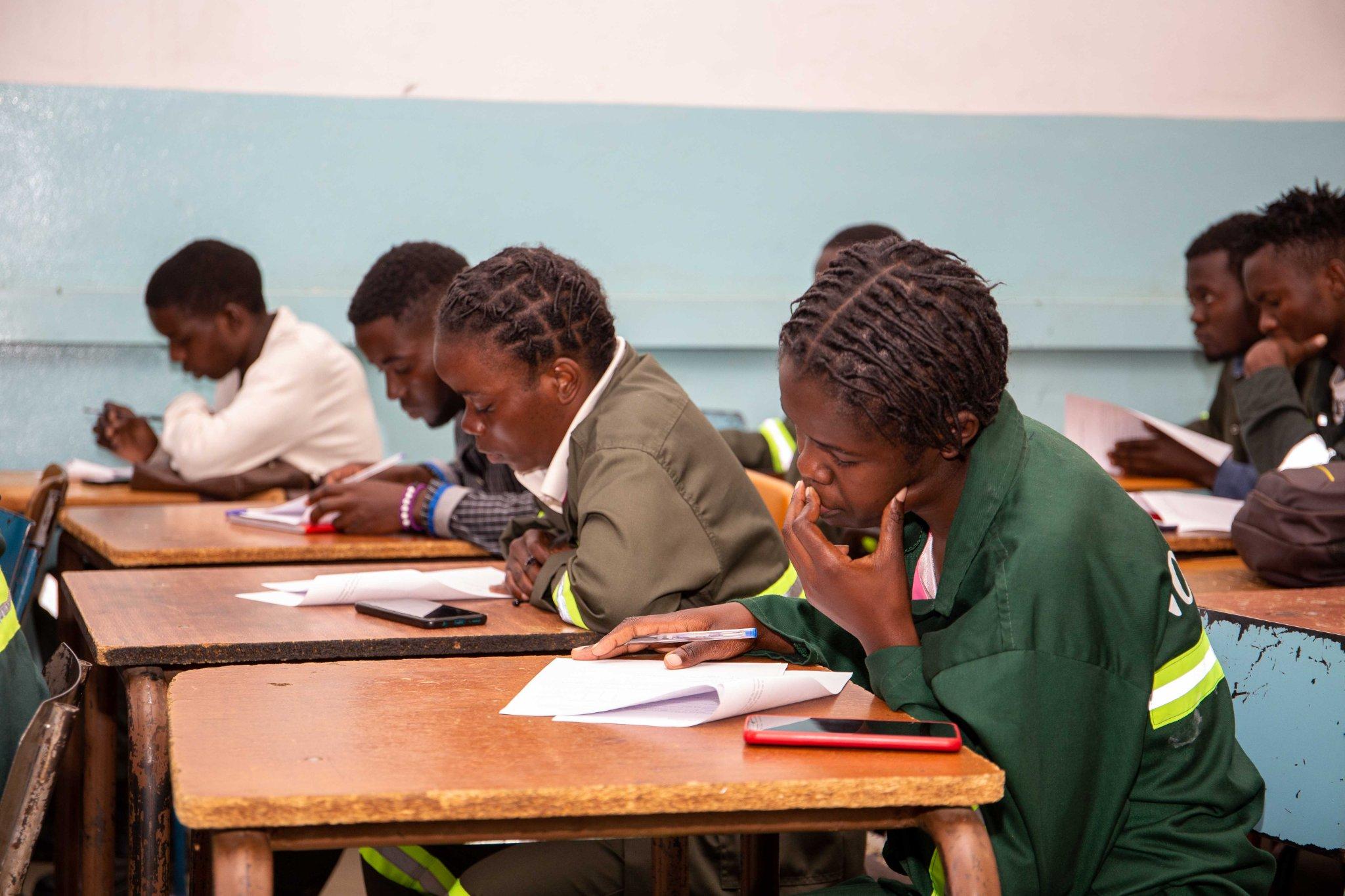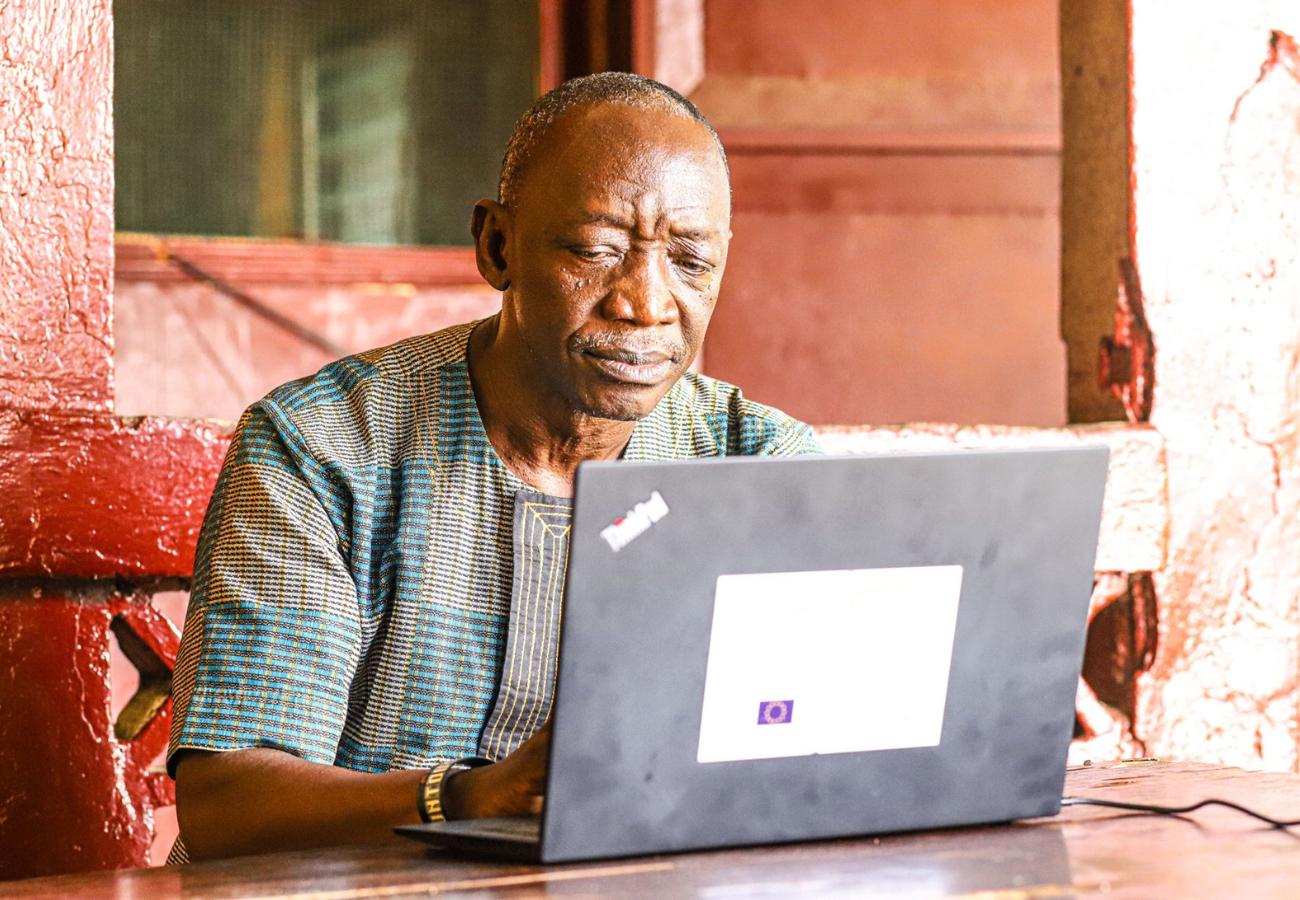Corruption and the Importance of Integrity in TVET
In recognition of the International Anti-Corruption Day, it is crucial to consider how integrity within Technical and Vocational Education and Training (TVET) can be fostered to prevent corruption and promote development across sectors.
- December 09, 2024
- By Raquel Barrios Gayo and Tom Jerry Felix Steffen

Recent data suggests that corruption costs the global economy over USD 2.6 trillion annually, equivalent to 0.5% of global GDP, with significant effects on sectors that are critical for workforce development and long-term and socio-economic progress. TVET is a key driver of skills development and plays a critical role in shaping the workforce of tomorrow, making the need for integrity and transparency more urgent than ever.
Understanding integrity and corruption in TVET
Integrity in education and skills development refers to the commitment of individuals and institutions to uphold values and principles, acting free from corrupt practices. It creates an environment where doing the right thing is not only possible but encouraged. In contrast, corruption in TVET occurs when power is misused for personal gain. Corrupt practices undermine the quality and accessibility of training programs, limiting opportunities for students, reducing the workforce’s competitiveness, and eroding trust in the TVET system.
Corruption within TVET can take many forms, including:
Misappropriation of funds: The diversion of funds allocated for training equipment and educational resources, and procurement fraud, such as bid rigging or overpricing, can lead to compromised training quality, limited access to necessary tools for students, and ultimately a decline in the overall effectiveness of programs.
Nepotism and favoritism in personnel management: Appointments and promotions based on personal connections rather than merit undermine professionalism and reduce an institution’s ability to deliver quality training. Hiring unqualified staff due to favoritism can lead to a decline in educational quality and a loss of stakeholder trust.
Licensing and accreditation fraud: The fraudulent acquisition of operational licenses and program accreditations—often through bribery—undermines the credibility and quality of TVET programs.
At the root of these issues is often a lack of sufficient investment in TVET infrastructure and specialized training resources. When resources are inadequate, institutions may struggle to maintain high standards, potentially creating gaps in oversight and accountability that foster corruption. Poor financial management, a lack of transparency, and weak governance structures can further enable corrupt behavior.
The cost of corruption in TVET
Corruption’s impact on education and training extends globally, affecting educational quality, limiting equitable access, and eroding stakeholder confidence. The World Bank estimates that corruption costs the global economy over USD 2.6 trillion annually, with adverse effects on sectors such as infrastructure and education. In the context of TVET, these losses compromise the development of a skilled workforce and impact economic stability. Corruption diverts resources away from essential programs, inflating costs and reducing the overall impact of training and development initiatives.
It also disrupts the alignment between industry needs and educational outcomes. As a result, it can lead to students graduating with skills that do not meet market demands, while employers struggle to find qualified workers. This creates a cycle of inefficiency that weakens economic growth.
Beyond financial losses, corruption undermines the credibility of education systems, particularly in TVET, where public-private partnerships are vital for aligning industry needs with educational outcomes. Integrity issues can deter private sector engagement, as companies fear their contributions—whether donations, training equipment, or apprenticeships—might be misused. This reluctance directly hampers the effectiveness of TVET programs, limiting their ability to meet industry demands for skilled workers and slowing economic growth.
In addition, research shows that corruption discourages foreign direct investment (FDI), as investors seek transparent environments to reduce risks and costs. The unpredictability of corrupt systems, combined with added financial burdens like bribery and red tape, makes such environments unappealing. In particular, investors from countries with strong anti-corruption laws prefer regions where corruption is low, as they prioritize secure, transparent settings for their investments.
UNIDO’s activities to foster integrity in TVET
In the fight against corruption in TVET, fostering a culture where integrity is the norm is key. To achieve this, integrity must be embedded into the operational fabric of TVET systems. By embedding integrity in governance, accountability, partnerships and program evaluation, TVET becomes more equitable, efficient, and sustainable, and can better fulfill its role in developing skilled, ethical workforces.
UNIDO contributes to promoting integrity in the TVET sector by implementing activities aimed at enhancing prevention, accountability, and capacity building among project stakeholders. UNIDO addresses systematic vulnerabilities in its activities by:
Enhancing oversight and accountability: Stringent auditing processes and transparent procurement practices help prevent the diversion of funds and ensure proper allocation to essential TVET resources and infrastructure.
Strengthening codes of conduct: Establishing and enforcing clear codes of conduct for staff and stakeholders fosters a culture of integrity and ethical behavior across the TVET ecosystem.
Implementing quality assurance mechanisms: Independent and efficient accreditation and assessment of TVET programs ensure that institutions meet high standards, maintaining the credibility of qualifications and the alignment of training with industry needs.
In countries like the Democratic Republic of the Congo (DRC), UNIDO partners with local institutions to raise awareness and promote ethical practices in the TVET system, ensuring that integrity becomes a cornerstone of education and training, paving the way for a more sustainable and equitable future.
For more information, please contact: Maximilien Pierotti, m.pierotti@unido.org


